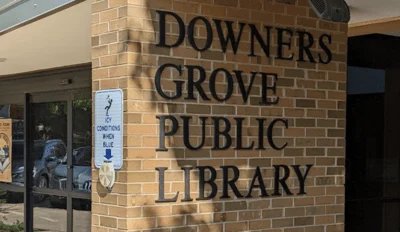Gov. J.B. Pritzker
Gov. J.B. Pritzker
The progressive tax proposed by Gov. J.B. Pritzker is estimated to raise $3.4 billion for the state. For DuPage County that works out to an estimated $248 million per year being taken out of the local economy.
The tax pushed by Pritzker will be voted on in a November referendum but Illinois Policy reports it relies on legally dubious tactics and will not resolve the state’s pension debt crisis.
One of the options Pritzker has proposed to balance the budget means withholding funds from taxpayers and healthcare providers, and taking money from the road fund.
In this scenario, instead of paying what is owed to local governments and paying state worker medical bills for services rendered, Pritzker plans to defer those medical bills to future budgets, not paying corporate income tax refunds to Illinois business owners who are owed those funds, and taking $100 million from the road fund, reserving road fund revenues for “transit costs.”
The second path features a progressive tax that has not been approved, and requires a constitutional amendment.
Critics say neither of these options would be good for the people of DuPage County, where property taxes rose 40 percent faster than inflation over a 20 year period (1996-2016), and those increases paid for pensions.
DuPage County taxpayers see 86 cents of every $1 taxed for municipal police go to pensions, and 59 cents of every $1 taxed for fire services go to pensions. Growing pension obligations crowd out services and tie the hands of local governments during the budget process, wrote Illinois Policy in an article on the topic in April 2019.
In addition, the progressive tax would have a huge impact on the state’s economy. In DuPage county, it could eliminate at least 7,000 jobs - but likely more - and statewide, it could mean 56,399 jobs lost, according to an analysis by the Illinois Policy Institute. That’s more than all of the jobs added in 2019 across the state.
The case for pension reform
Instead of moving for constitutional pension reform, where growth in future not-yet-earned pension benefits is reduced to a sustainable and affordable level and saving more than $11 billion over the first five years, Pritzker is aiming to increase property taxes on the state’s top earners, those who make $250,000 or more each year. To add to the uncertainty of the as-yet-not-passed constitutional amendment for the progressive tax, Pritzker won’t say that the progressive tax program wouldn’t raise property taxes on residents who make less than $250,000, after the initial rate increase.
Changing the state’s constitution to address the pension mess would be a long-term fix that could make it easier to balance the state’s budget, pay people what they are owed and
Another step to fix the pension debt mess that is not being considered is to align responsibility for paying the new pension benefits with accountability for negotiating compensation for employees of schools and universities. That could save up to $571 million in the first year and billions over the first five years, according to a 5-year budget plan developed by Illinois Policy Institute, called Illinois Forward.
Illinois Forward also called for “reducing administrative bloat in school districts, which would save an estimated $289 million in the first year and $3.6 billion over the first five years.






 Alerts Sign-up
Alerts Sign-up